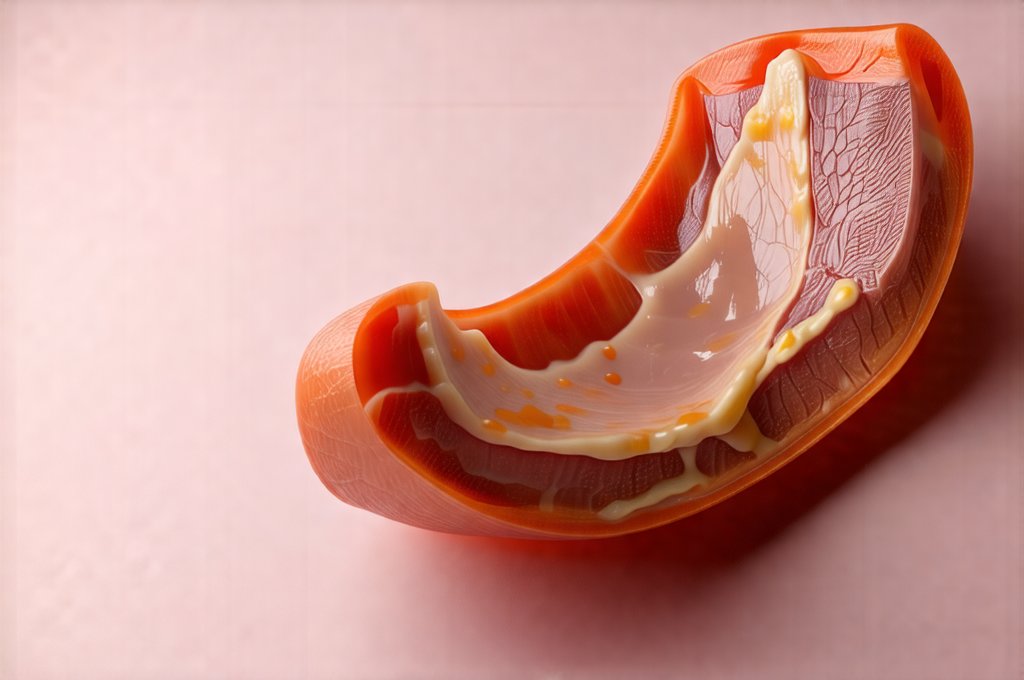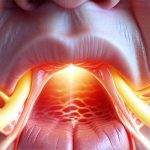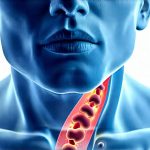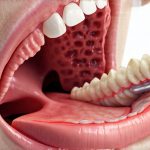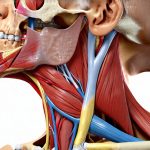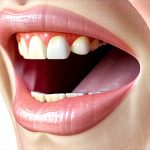Gastroesophageal reflux disease (GERD) is a surprisingly common condition affecting millions worldwide, often manifesting as heartburn or acid indigestion. However, its presentation can be far more nuanced and distressing than typical symptoms suggest. Many individuals experience GERD not just as burning discomfort, but with an unsettling sensation of food being stuck in their throat, or even a feeling akin to choking, leading to significant anxiety and concern. This isn’t simply about digestive upset; it’s often rooted in complex interactions between the esophagus, stomach, and the muscles responsible for swallowing. Understanding these mechanisms is crucial for recognizing when this sensation might be linked to GERD, and what steps can be taken to manage it effectively.
The feeling of food getting stuck or choking isn’t always a sign of a serious medical emergency. However, it’s vital not to dismiss it as ‘just anxiety.’ While psychological factors can play a role, persistently experiencing this sensation warrants investigation because it could indicate an underlying issue requiring attention. The discomfort can range from mild and intermittent to severe and debilitating, impacting daily life and potentially leading to avoidance of certain foods or social situations. This article will delve into the connection between GERD and this distressing symptom, exploring its causes, potential complications, and strategies for finding relief. If you’re struggling with food-related anxiety, understanding living a full life can be a helpful first step.
Understanding the Link Between GERD and Dysphagia/Globus Sensation
The sensation of choking on food or having something stuck – medically termed dysphagia (difficulty swallowing) or globus sensation (the feeling of a lump in the throat even when nothing is there) – can be directly linked to GERD through several pathways. It’s not always about large chunks of undigested food; even normally swallowed material can trigger this discomfort. The core issue lies in how refluxed stomach acid irritates and potentially damages the esophagus, affecting its normal function. Chronic inflammation caused by frequent acid exposure can lead to esophageal motility disorders – disruptions in the coordinated muscle contractions necessary for moving food down the esophagus.
This disruption leads to a slower or less effective peristaltic wave (the muscular contraction that pushes food along), causing food to linger and potentially triggering the sensation of being stuck. Furthermore, GERD-related inflammation can also affect the lower esophageal sphincter (LES) – the muscle at the bottom of the esophagus that prevents stomach acid from flowing back up. A weakened or malfunctioning LES increases reflux episodes, exacerbating the problem and creating a vicious cycle of irritation and swallowing difficulties. It’s important to differentiate between true dysphagia, where there is objectively difficulty swallowing, and globus sensation, which is more of a perception of something being stuck without actual obstruction. Both can occur in relation to GERD. When normal food starts feeling like the enemy, it’s time to investigate the root cause.
The connection isn’t always straightforward. Sometimes the ‘choking’ feeling arises not from the food itself but from heightened sensitivity to normal swallowing sensations due to esophageal inflammation caused by acid reflux. This means even small amounts of food or liquid can feel problematic, leading to increased anxiety and potentially reinforcing the sensation. This is why addressing the underlying GERD is often key to alleviating these symptoms – it’s about restoring normal esophageal function and reducing irritation. Consider a food sensitivity reset to identify potential triggers.
Complications and When to Seek Medical Attention
While many experience mild GERD symptoms that can be managed with lifestyle changes and over-the-counter medications, persistent or worsening dysphagia/globus sensation associated with GERD could signal more serious complications. One significant concern is esophagitis – inflammation of the esophageal lining – which, if left untreated, can lead to scarring and narrowing of the esophagus called strictures. Strictures make swallowing increasingly difficult, requiring intervention to widen the passage.
Another potential complication is Barrett’s esophagus, a condition where the normal cells lining the esophagus are replaced by cells similar to those found in the intestine. This change increases the risk of developing esophageal adenocarcinoma – a type of esophageal cancer. Although relatively uncommon, it underscores the importance of addressing chronic GERD and monitoring for changes in symptoms. It is critical to remember that these complications develop over time with untreated or poorly managed GERD; early intervention can significantly reduce risk. Understanding how to track progress on a gut healing plan is important for long-term management.
Knowing when to seek medical attention is crucial. You should consult a doctor if: – Difficulty swallowing becomes progressively worse. – Food frequently gets stuck and doesn’t pass easily. – You experience pain while swallowing (odynophagia). – You have unintentional weight loss. – You notice blood in your vomit or stool. – Over-the-counter medications provide no relief. These symptoms could indicate more than just GERD, and a thorough evaluation is necessary to determine the underlying cause and appropriate treatment plan.
Diagnosing the Connection: Tests & Assessments
Pinpointing whether the choking sensation is related to GERD requires careful diagnosis. A doctor will typically start with a detailed medical history and physical examination, asking about your symptoms, dietary habits, and any medications you are taking. Beyond this initial assessment, several diagnostic tests can help determine the cause of your swallowing difficulties:
- Barium Swallow (Esophagram): This involves drinking a barium-based liquid while X-rays are taken. The barium coats the esophagus, allowing doctors to visualize its shape and identify any abnormalities such as strictures or motility disorders. It helps assess how efficiently food travels down the esophagus.
- Endoscopy: A thin, flexible tube with a camera is inserted into the esophagus to visually inspect the lining for inflammation, ulcers, or other signs of damage. Biopsies can be taken during endoscopy to check for Barrett’s esophagus or cancer. This is considered the gold standard for diagnosing GERD and related complications.
- Esophageal Manometry: This test measures the pressure and coordination of muscle contractions in the esophagus. It helps identify motility disorders and assess the function of the LES, revealing if it’s opening inappropriately or not functioning effectively.
These tests, often used in combination, provide a comprehensive picture of esophageal health and help determine whether GERD is contributing to your choking sensation. The results guide treatment decisions and ensure appropriate management strategies are implemented. If you have children experiencing similar symptoms, learning how to create a kid-friendly food and symptom journal can be invaluable.
Lifestyle Modifications for Relief
Often, the first line of defense against GERD-related dysphagia involves lifestyle modifications aimed at reducing acid reflux and improving esophageal function. These changes can significantly alleviate symptoms: – Dietary Adjustments: Avoid trigger foods such as fatty meals, spicy foods, chocolate, caffeine, alcohol, and carbonated beverages. Smaller, more frequent meals are generally easier to digest than large ones.
– Elevate the Head of Your Bed: Raising the head of your bed by 6-8 inches can help prevent stomach acid from flowing back up into the esophagus while you sleep. Use blocks or a wedge pillow rather than just extra pillows.
– Maintain a Healthy Weight: Obesity increases abdominal pressure, which can contribute to reflux. Losing excess weight can significantly reduce symptoms.
– Avoid Eating Before Bed: Allow at least 2-3 hours between your last meal and bedtime. This gives your stomach time to empty before you lie down.
– Quit Smoking: Smoking weakens the LES and irritates the esophagus, exacerbating GERD symptoms.
These changes require consistency and commitment but can yield substantial improvements in swallowing comfort and overall quality of life. Remember that lifestyle modifications are often most effective when combined with medical treatment. It’s vital to ensure you are getting enough nutrients even while making dietary changes.
Medical Interventions & Treatment Options
When lifestyle changes aren’t enough, several medical interventions can help manage GERD-related dysphagia. Proton pump inhibitors (PPIs) are commonly prescribed to reduce stomach acid production, allowing the esophagus to heal and reducing inflammation. Other medications include H2 receptor antagonists, which also decrease acid production, and antacids, which neutralize stomach acid for temporary relief.
In cases of esophageal strictures, dilation therapy can be used to widen the narrowed passage. This involves inserting a balloon-tipped catheter into the esophagus and inflating it to stretch the constricted area. For severe or refractory GERD, fundoplication surgery may be considered. This procedure strengthens the LES by wrapping part of the stomach around the lower esophagus, preventing reflux.
Emerging treatments like LINX device implantation, where a ring of magnetic beads is placed around the LES to strengthen it, are also showing promise. It’s important to work closely with your doctor to determine the most appropriate treatment plan based on the severity of your symptoms and underlying condition. The goal isn’t just symptom relief but long-term management of GERD and prevention of complications. If you suspect food sensitivities a symptom, addressing these can also aid in managing your symptoms.

